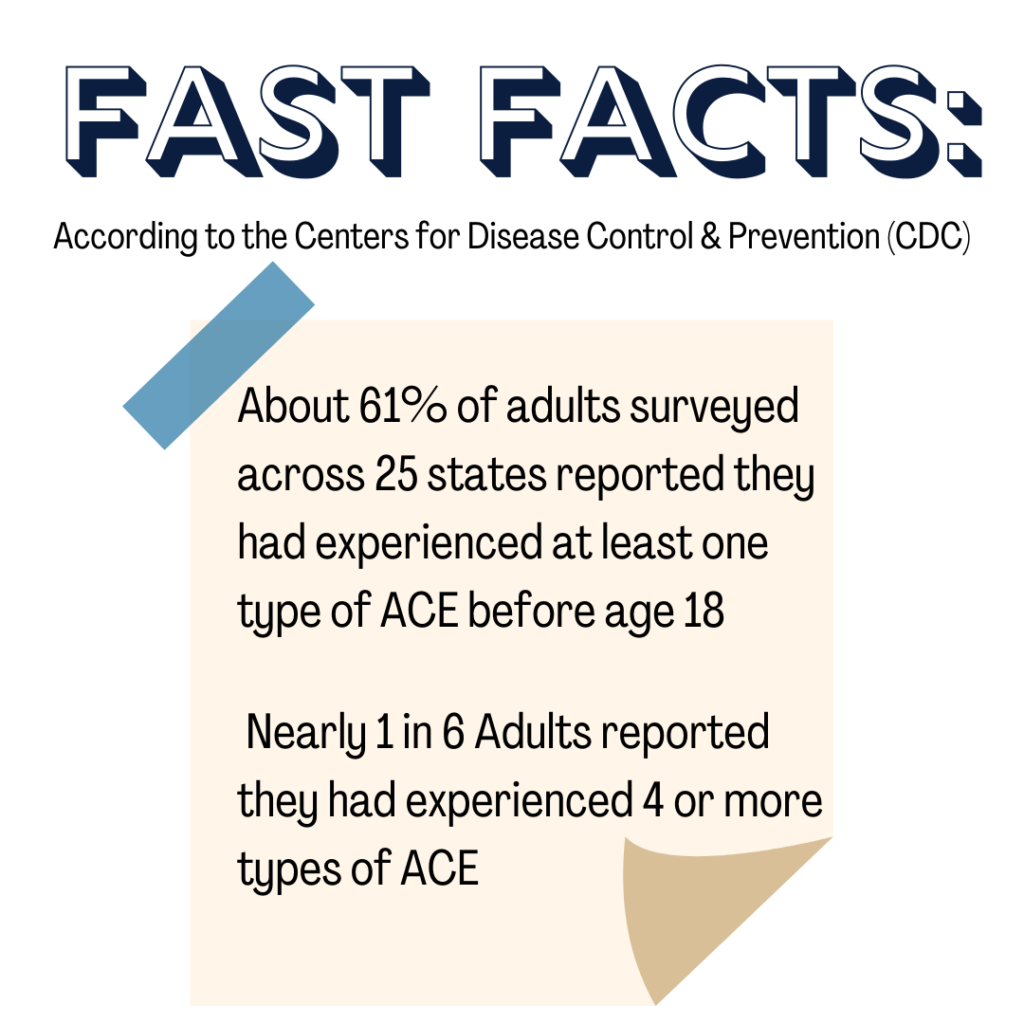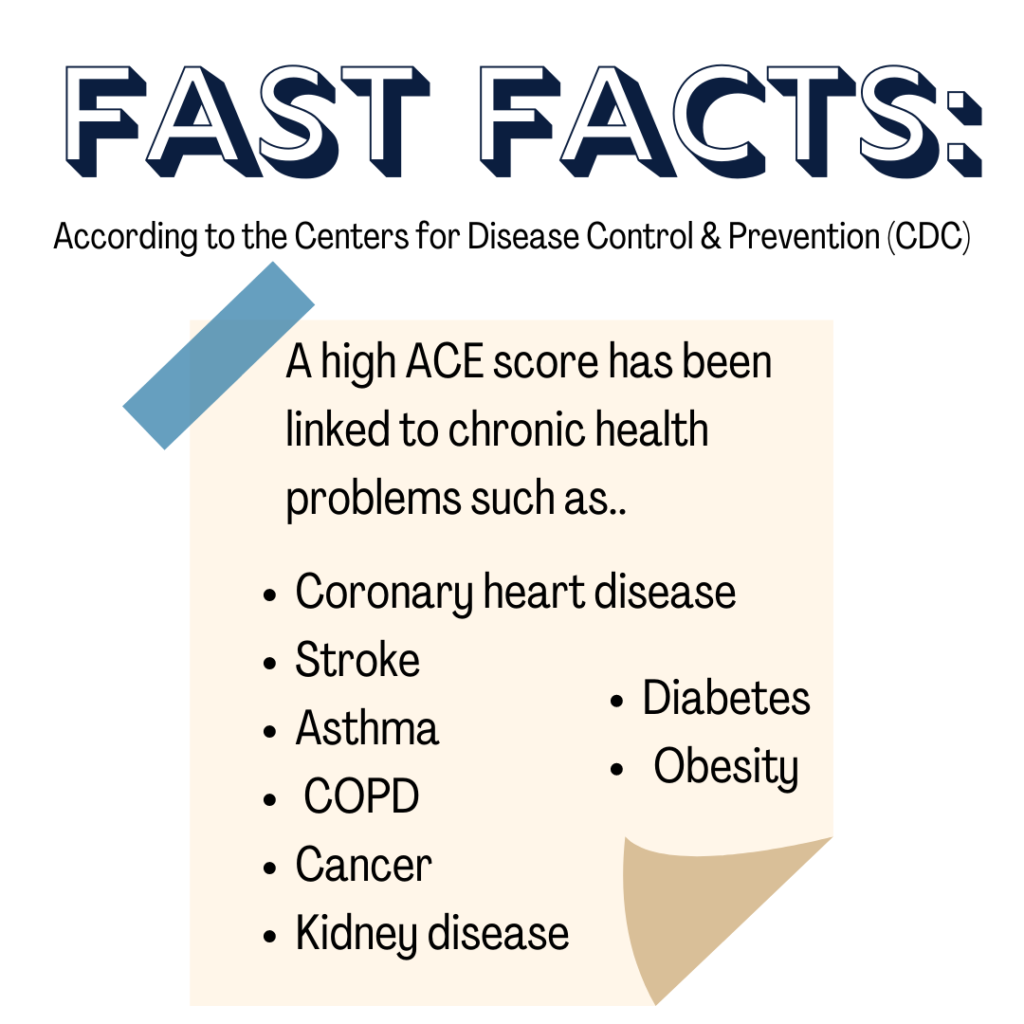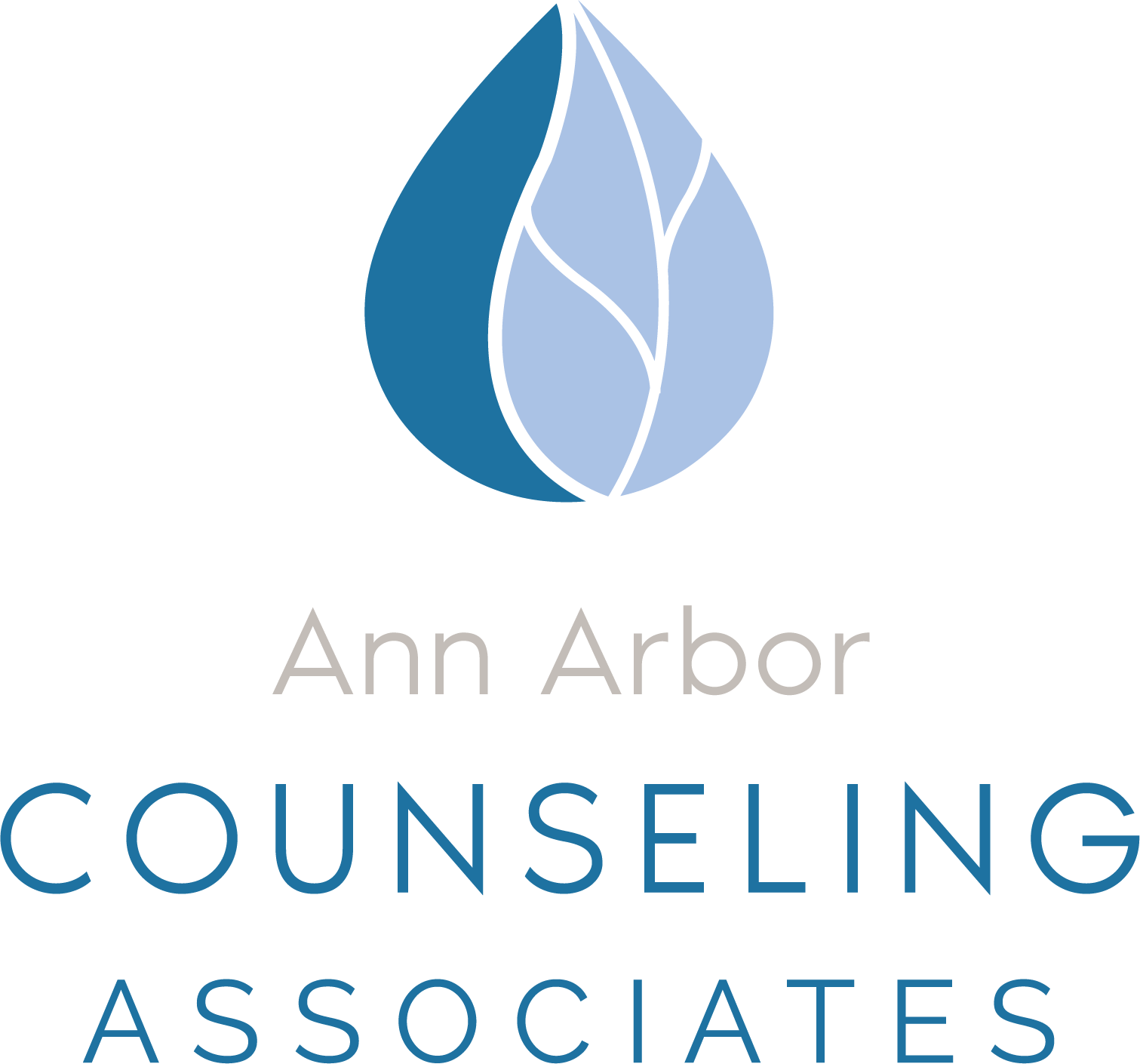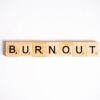Content Warning: Abuse, Violence
What is an ACE score? ACE stands for Adverse Childhood Experiences. An ACE score is determined by the amount exposure to abuse, neglect, and difficult environmental stressors in a person’s childhood.
- Examples of Adverse Childhood Experiences Include
- Verbal and Emotional Abuse
- Physical Abuse and/or Intimidation
- Sexual Abuse
- Neglect (food insecurities, financial hardships, etc.)
- Parental Divorce/Separation
- Witnessing Domestic Violence
- Living in a household with..
- a problem drinker or someone who abused street drugs
- Someone who is mentally ill, depressed, and/or attempted suicide
- someone who was incarcerated
To determine your ACE score click here
About 61% of adults surveyed across 25 states reported they had experienced at least one type of ACE before age 18, and nearly 1 in 6 reported they had experienced 4 or more types of ACE.

How does a person’s ACE score impact their mental health? A higher ACE score can sometimes result in a dysregulated Autonomic Nervous System (ANS). ANS takes care of your automatic bodily functions–such as your heart beat, body temperature, and how you digest food. ANS is also in control of your survival and stress response. Therefore, ANS is constantly on the lookout for danger and safety in your environment.

When a person experiences trauma or chronic stress it can prevent a person’s ANS from functioning in a healthy way. Thus, resulting in being stuck in states of survival. For example, a person may consistently shift back and forth between fight, flight and/or freeze mode. A person may feel they are constantly in a state of danger, when there is no threat.
Oftentimes when a person is consistently living in a state of survival they turn to coping mechanisms that feel helpful in the moment but are harmful over time. To learn about ANS click here to check out this video from The Trauma Foundation.
Adults with an ACE score of 4 or higher were 12 times as likely to have attempted suicide than those with an ACE score of 0.
Men with an ACE score of 6 or higher were 46-times as likely to have injected drugs than men who had an ACE score of 0.
How is physical health impacted by a person’s ACE Score? It can change the way the body responds to stress. A high ACE score has been linked to chronic health problems such as..
- Coronary heart disease
- Stroke
- Asthma
- Chronic obstructive pulmonary disease (COPD)
- Cancer
- Kidney disease
- Diabetes
- Obesity
Are there childhood factors that counteract the impact of an ACE Score? Research suggests that there are several protective factors that help lessen the impact of a person’s ACE score on mental and physical health.
These protective factors include growing up with…
- A consistent family life where a person feels safe and supported
- Strong social support networks and positive friendships
- Caring adults/mentors outside of the family
- Caregivers who can meet the child’s basic needs (food/shelter/healthcare)
- Caregivers that provide supervision and consistent household rules
- Adults who approach conflict in a calm manner
Research suggests that even having one relationship with an adult that is caring and safe significantly lessens the impact of ACE on a person’s overall health.
Note: ACE score is only a measure and cannot indicate for sure that a person’s mental and physical health will be impacted by adverse childhood experiences. As always your providers will want to look at the whole picture when collaborating with you on a treatment plan.
Contact AACA to connect with a therapist and heal from the impact of ACE. Call (734) 956-0051 or email welcome@annarborcounselingservices.com
Sources:






